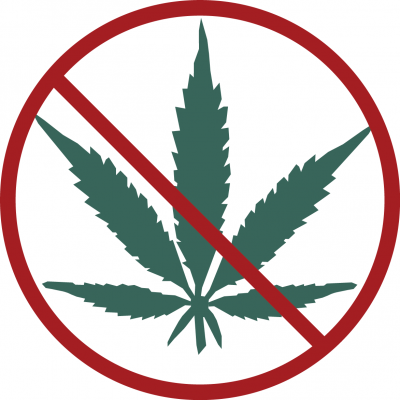
Massachusetts Gov. Charlie Baker and Boston Mayor Martin Walsh joined a bipartisan committee Thursday opposing the commercial legalization of marijuana in the commonwealth, according to a Thursday press release.
Though marijuana is decriminalized and legalized for medical purposes in Massachusetts, new legislation proposes full legalization for the sale and purchase of marijuana and other cannabis products, according to the release.
The committee, A Campaign For A Safe and Healthy Massachusetts, plans to bring together “a vast coalition of health care and community leaders, anti-addiction advocates, educators/teachers, business groups, first responders, and families who are opposing this proposed new law,” the release stated.
Massachusetts Speaker of the House Robert DeLeo (D-Winthrop) said in the press release that the legislation will be an important act, as the country faces a substance addiction crisis.
“As we face a substance addiction crisis of epic proportions, I oppose measures that make it easier to introduce young people to drug use,” DeLeo said in the release. “I stand with public officials, such as Governor Baker and Mayor Walsh, and others who want to make sure the public knows the real risks involved with this dangerous proposal.”
The release stated that the committee intends to spread knowledge of health risks that arise from the legalization of marijuana, such as a rise in use among young people and addiction stemming from long-term use. According to the release, the group aims to inform voters in an effort to prevent the proposed bill from passing.
Walsh expressed disapproval for the proposed legislation in the release, saying the legislation poses a danger to adolescents.
“Where marijuana is legal, young people are more likely to use it and a vote against legalizing the commercial marijuana industry is a vote to protect our kids and communities,” Walsh said in the release.
Walsh also said in a Friday press conference that he has concerns about how marijuana can act as a gateway drug for America’s youth.
“Marijuana, in some cases, is a gateway drug, and that’s a problem I have,” Walsh said at the press conference. “The [negative] effects on the community are going to be far greater than the benefits.”
Elizabeth Guyton, a spokesperson for Baker, said the governor strongly opposes legalization of recreational marijuana.
“Governor Baker believes when it comes to an issue as serious as the health and safety of children, the voters deserve more than unfortunate and insensitive attacks from those seeking to open a new billion dollar commercial marijuana industry in the commonwealth,” Guyton said.
Heidi Heilman, president of the Massachusetts Prevention Alliance, said the legalization of marijuana would undermine the drug abuse prevention efforts of the commonwealth.
“[Legalization] would be counterproductive to everything we are working for to protect our children and families from drug use and addiction,” Heilman said. “We need to be preventing drug use.”
Steve Epstein, spokesperson for Bay State Repeal, a pro-legalization group in Boston, said he disagrees with the public officials’ actions.
“Our group will continue to advocate for the legalization of marijuana, and we have always supported regulation on it,” Epstein said. “If [the group] fears how legalization will impact young people, they should strengthen the legislation around it rather than blocking it altogether.”
Several Boston residents showed support for Walsh and Baker, and they said they fear that if marijuana were to be legalized, young people will be at risk.
Anne Madera, 37, of Beacon Hill, expressed concern for the same reasons the campaign cited.
“I hold the same fears as Baker and [Walsh],” she said. “I’m worried about how this may increase usage among high schoolers. I can understand why legalization could be good, but I think that the common worries of how this will impact children are not without base.”
Annette Griffin, 62, of the South End, said she is glad public officials are finally taking a definitive stance on this issue.
“After years of ambiguous comments on marijuana, it’s important that the governor and mayor definitively said they were opposed,” she said. “With their support, the anti-legalization movement will have more power and will hopefully succeed in protecting both young people and possible addicts.”
William Brickman, 46, of the South End, said officials should utilize reform to encourage safety instead of opposing legalization.
“Legalization of marijuana is just like with alcohol — there should be regulations on it, and it should be kept out of children’s hands,” he said. “However, I don’t think that voting down the proposal is the way to do it. Maybe reforming it to implement better and safer standards is the better alternative.”